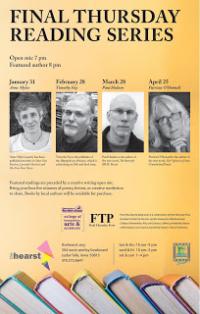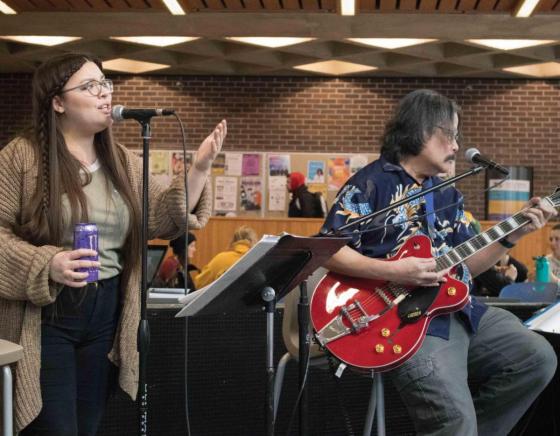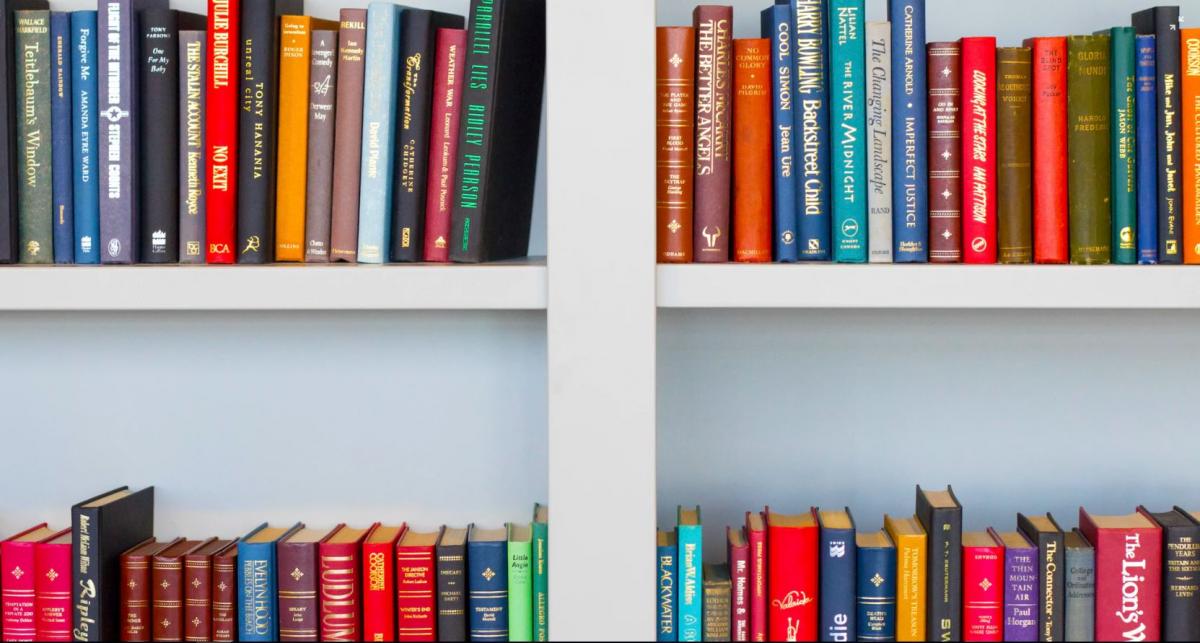Final Thursday Reading Series: Vince Gotera

The North American Review is proud to be published at the University of Northern Iowa, located in Cedar Falls, Iowa. In keeping with our pride in our academic community, the North American Review is sharing interviews conducted for the Final Thursday Reading Series in Cedar Falls. Now in its 19th season, the Final Thursday Reading Series features regional authors presenting their recent work. Prior to the featured reader, an open mic gives local writers a chance to find a friendly audience for original poetry, fiction and creative nonfiction. FTRS takes place on the final Thursday of each month at the Hearst Center for the Arts in Cedar Falls, Iowa. FTRS is a collaboration of Final Thursday Press, the Hearst Center for the Arts and the UNI College of Humanities, Arts & Sciences. Today, we feature their reader from April and the original interview can be found here.
No fooling: April 1 is the release date for Vince Gotera's new Final Thursday Press poetry collection, The Coolest Month. In this interview, he discusses how the collection came about and what drew him to writing poetry in response to prompts.
So, how did the whole idea for this collection come about? Did you have the idea for a book when you started participating in the National Poetry Month prompts?
Vince Gotera: Jim, first of all, thank you for providing a home for The Coolest Month. You and the Final Thursday Press have made the book downright beautiful, and I'm very grateful for the fine editing and design. To answer your question, when I started writing April poems in 2012, I didn't have any intentions of making a book of them. I was just writing poems. I knew some of them would end up in my books at some point but I figured that would happen from a given poem coinciding with some organizing theme in a book I might be working on. It was only in the last couple of years, when I realized I had written over 200 April poems, that the idea for a collection came, though I can't really pinpoint an epiphanic moment when it occurred to me. The notion just kind of evolved somehow.
What drew you to writing poems in response to prompts in the first place? Some people might find it limiting to be restricted to a particular topic or concept, but you clearly don’t.
VG: What drew me to the practice was actually the prompts themselves. Because NaPoWriMo and Poem-a-Day are projects designed to get people — lots of people — writing poems, they both use prompts in order to give those people a leg up in composing. Both projects also emphasize that people don't have to use the prompts at all. It's the writing of the poems that's important. I'm kind of an ornery cuss, though, and when I encounter a challenge, I just have to try to do it. (Unless it involves pain!) Insert smiley emoji. Mashing up the NaPoWriMo and PAD prompts just seemed a natural. As JFK said, we should take on challenges "not because they are easy, but because they are hard." Actually, I can't believe I just quoted JFK. I really do the prompt melding because it's fun and I just wanna see if I can carry it off. By the way, it's April now and I would encourage folks out there to write a poem a day during the month. Here's where you can find the daily prompts: NaPoWriMo and Poem-a-Day. You can also find those daily prompts on my own blog, The Man with the Blue Guitar, along with my poem for each day. While I'm saying this, I'd like to give a shout out to the poets Maureen Thorson and Robert Lee Brewer, founders of NaPoWriMo and PAD, respectively. They have both inspired thousands of poets, and I'm grateful they provided blurbs for The Coolest Month.
Your poetry is distinct for [almost?] never being written in free verse. What draws you to certain forms and patterns like the abecederian or the hay(na)ku or terza rima haiku sonnet (besides the fact that these terms are a pleasure to pronounce)?
VG: The very first poem I wrote in early grade school was in quatrains rhymed abab. I don't have that poem anymore but it appeared in the school's newsletter (so I got bit by the publishing bug early). Anyway, that little anecdote shows that I've been very interested in poetic forms for a long time, practically six decades. I do occasionally write in free verse but that happens because for that specific poem, I'm feeling that free verse is what will make that poem work. It's rather like my merging of April prompts: I just wonder if I can pull it off. Writing in poetic forms is a challenge I can't resist. In addition, I find when I'm concentrating on form, it actually frees up my mind to be more spontaneous; I make discoveries about the subject that probably would not have happened if I wasn't busy juggling a variety of poetic elements.

I love the photo of your guitar on the cover, and guitar geeks have already asked me for details on it. What are the specs, and why did you want it on the cover?
VG: Thanks, Jim! That is the first electric guitar I owned, probably from when I was 12 or so (around when the Beatles arrived in the US). It's a Sears Silvertone Silhouette guitar (modeled loosely after the Fender Jaguar). Musicians of my generation often had instruments from Sears and Roebuck as kids. That was just where everyone shopped. In Tom Hanks's movie That Thing You Do, the members of the Oneders band had Sears instruments on screen before they make it big. One of the three prompts for the poem for April 23 in the book was to write an ekphrastic poem — a poem based on another work of art. Well, with ekphrasis comes the difficulty of getting permission to use that work of art when trying to publish the poem later. So I dodged that bullet by just creating my own visual image to write a poem on. I went out on the driveway, held the guitar up to the sky, and shot the photo with my phone. I used that image for the cover because that avoided the April 23 poem being illustrated by a black and white picture. And, besides, I love that guitar and also the image.
Is there any question I should have asked you but didn’t?
VG: Yes, there is. People reading The Coolest Month would have the best experience by looking at the notes in the back of the book along with the poems. So poem, note, poem, note. Each endnote provides context for the poem: what prompts I used to write it, and sometimes info on the form of that poem, as well as any background info that enhances understanding. Thanks, Jim! Final Thursday Press is a literary treasure. I'm not just saying that because FTP published The Coolest Month and Ghost Wars (another poetry collection of mine in the early 2000s) but because FTP really is a treasure. To the people reading this interview, check out Final Thursday Press's list — many wonderful books over going on two decades.
Interview conducted by: Jim O'Loughlin.
Recommended
Nor’easter
Post-Op Appointment With My Father
Cedar Valley Youth Poet Laureate | Fall 2024 Workshop





